Are we consuming tannery waste?
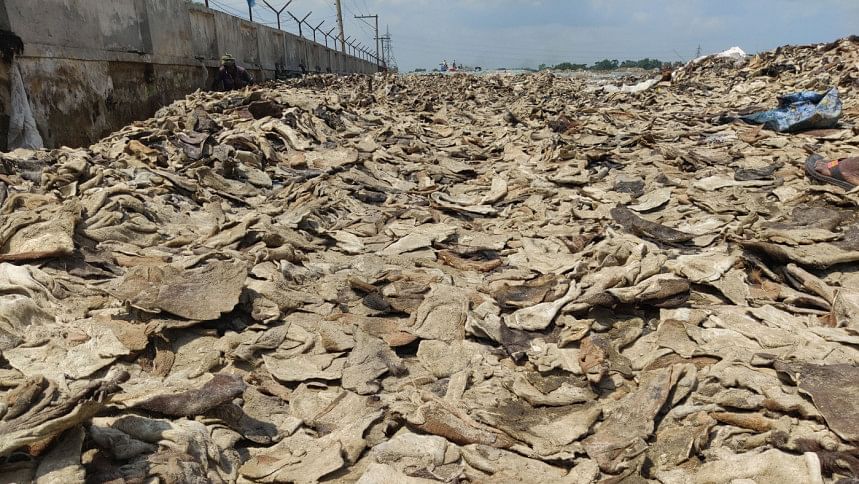
First, a gang smuggles solid wastes of leather (leftovers after cutting and trimming) from the Savar Tannery Industrial Estate. Then it sells them to poultry and fish feed producing factories around the country.
Later, the chicken and fish, consuming these wastes, end up on the plates of citizens.
You don't need to be a health expert to understand how such practices pose public health hazards.
During multiple visits to the tannery estate, this correspondent spoke to many officials, staffers and truck drivers. Most of them did not want to talk about the issue in detail, but they all more or less admitted to the fact that these solid wastes are indeed getting smuggled and being sold to animal feed producing factories.
But what's scarier is that this has been going on for a while.
The High Court in 2019 directed the government to immediately stop operation of poultry and fish feed factories across the country that use hazardous tannery waste for producing feed.
"A variety of chemicals, including chromium, are used to make animal feed from these wastes. These chemicals have the potential for deadly diseases, including cancer, in the human body," reads a Bangladesh Small and Cottage Industries Corporation (BSCIC) statement on the issue dating back to early this year.
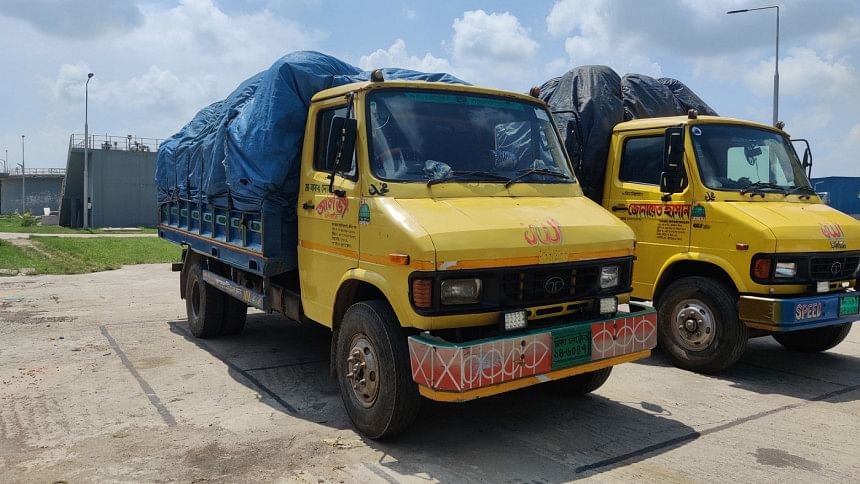
Savar upazila livestock officer Dr Md Sajedul Islam also said use of tannery waste is completely prohibited in poultry industry. This waste carries heavy metals and hazardous chemicals that are harmful for health.
However, the smuggling of tannery wastes continues to this date, although the authorities and police claim that they have a zero-tolerance policy in this regard.
The industrial area has 141 operational tanneries and one dedicated dumping station for solid waste, which is around six acres. They usually dump these solid wastes in a dedicated station and leave them there. According to officials, around 64,000 tonnes of solid waste is produced per year.
Staff and transport workers in the tannery estate alleged that the gang go to the estate's dumping stations late at night or early morning with trucks, then load it with solid tannery waste and leave the area.
"A section of insiders including members of the authorities, security guards and law enforcers are helping this gang," alleged Nayan Miah, a truck driver for the tannery estate.
Sometimes, the authorities seize trucks laden with solid waste. But later they release it through underhand dealings, said another worker, seeking anonymity.
Visiting the estate premises recently, this correspondent saw two such trucks -- Dhaka Metro Dr 14-6047 and Dhaka Metro Dr 12-1271 -- kept parked near the Waste Treatment Plant Company Limited. They were filled with seized solid wastes.
"We have seized the two trucks. We will hand over those to police soon," said an official of the estate.
He also alleged that law enforcers in most of the cases do not take action against these illegal traders. Rather, they release the trucks after taking bribes.
Russell Mollah, in-charge of Chamra Shilpa Nagari Police Outpost, denied the allegations. "The tannery estate authorities have so far handed over only one truck to us. But, we could not take action as none filed any case over this matter," he said.
"We are not authorised to seize any truck. If the tannery authorities seize trucks and file a case, we will definitely take action in this regard," he said.
Contacted, Satendra Nath Paul, chief engineer of Dhaka Tannery Industrial Estate Waste Treatment Plant Company Limited, said, "We will discuss the matter in the next board meeting and come up with a decision so that we can take stern action against the perpetrators."
About leaving the wastes in a dump yard inside the industrial zone, he said, "We have approached companies that can use these for by-products [factories making wallets, leather boards, sandals and key rings or even ceramic, cement or tiles factories]. We have also floated a tender in this regard, but no one officially responded to it yet."

 For all latest news, follow The Daily Star's Google News channel.
For all latest news, follow The Daily Star's Google News channel. 

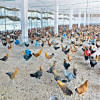
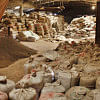

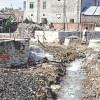



Comments